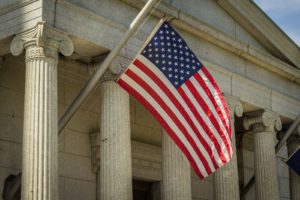California, cannabis, and corruption recently squared off in United States v. Kimbrew. The Ninth Circuit’s holding in United States v. Kimbrew, 2019 WL 6693744 (9th Cir. Dec. 9, 2019) clarified the reach of the federal bribery statute, 18 U.S.C. § 201, which requires the existence of a quid pro quo agreement. A quid pro quo is the exchange of something in return for something else. As a topical example, President Trump’s impeachment stems from an alleged quid pro quo: the White House purportedly attempted to leverage foreign aid in exchange for the investigation of President Trump’s potential political rival, Joe Biden. In the white collar crime context, a quid pro quo agreement occurs when “the defendant received, or intended to receive, something of value in exchange for an official act.” United States v. Silver, 864 F.3d 102, 111 (2d Cir. 2017). The Kimbrew court held that criminal liability attaches when a government official agrees to do something in an official capacity in exchange for something else. Further, the official’s ability to perform the act, or the quo of quid pro quo, is irrelevant. Kimbrew, 2019 WL 6693744 at *4.

Background
Defendant Michael Kimbrew worked as a field representative for Congresswoman Janice Hahn. Id. at *1. During a March 2015 visit of Green Legendz. a medical marijuana dispensary, Kimbrew told a Legendz employee that the business didn’t have the required permits. The employee testified that Kimbrew “seemed like” he was “expecting some type of agreement.” Id. at *2. Kimbrew later returned to Legendz, warning that he would have the business shut down if the owners didn’t contact him. The owners then met with Kimbrew at his Compton City Hall office, where he explained that he could make Legendz’s “permitting problem” go away. The owners understood this to mean that Kimbrew wanted money in exchange for helping Legenz “stay in business.” Id.
In May 2015, an undercover FBI agent, posing as a Legendz partner and investor, met with Kimbrew. Kimbrew “said that, for a $5,000 payment, he would get Green Legendz a permit and ‘make sure that nobody bothers you.’” Id. Kimbrew then bragged of his “substantial influence,” including close relationships with law enforcement and government officials, such as the City Attorney. Id.
At a later meeting, the “investor” told Kimbrew that Legendz received a warning letter from the City Attorney. Again, Kimbrew assured the “investor” that he could make “all of that … go away.” Id. A few days after accepting a $5,000 payment from Legendz to make “all of that … go away,” “Kimbrew was indicted on one count of attempted extortion by an employee of the United States, in violation of 18 U.S.C. § 872, and one count of bribery of a public official, in violation of 18 U.S.C. § 201(b)(2)(A).” Id.

Bribery Requires an Official Act
The Kimbrew court explained, “A public official commits bribery if he ‘corruptly demands, seeks, receives, accepts, or agrees to receive or accept anything of value . . . in return for . . . being influenced in the performance of any official act.’ 18 U.S.C. § 201(b)(2)(A). An official act is ‘any decision or action on any question, matter, cause, suit, proceeding or controversy, which may at any time be pending, or which may by law be brought before any public official, in such official’s official capacity, or in such official’s place of trust or profit.’ 18 U.S.C. § 201(a)(3).” Id. at *3.
On appeal, Kimbrew argued that the government didn’t prove that he could “make good” on his promises and therefore, he didn’t commit an “official act” within the meaning of the federal bribery statute. The court rejected this argument, reasoning that it’s “immaterial whether the bribe recipient ever intended to follow through with his end of the bargain, so long as he agreed to perform the official act.” Id.
Kimbrew next argued that it was impossible for him to help Legendz secure a permit – marijuana dispensaries were categorically unlawful in the City of Compton – and therefore, there was no official act. Id. at *4. Again, the court rejected his argument, explaining that the “broad temporal language” of the bribery statute “encompasses scenarios in which a briber might anticipatorily seek to induce official action relevant to a circumstance yet-to-come.” Id. As such, the government didn’t need to prove that Kimbrew could achieve the promised outcome; instead, the government merely needed to establish that Kimbrew agreed to perform the act. Id.
The court cautioned, “The reach of § 201 is not unlimited. For example, the ‘official act’ core of § 201 carries with it a requirement that there be a nexus between the public official’s position and the quo he promises.” Id. at *5. Because Kimbrew’s “official responsibilities included engaging with the local Compton government” and “serving as a representative in that community,” “the quos at issue bore a nexus to Kimbrew’s official role.” Id.
Conclusion
While Kimbrew is unlikely to further endear the Ninth Circuit to President Trump – he previously described the court as a “disgrace” – the holding ultimately serves to refine the scope of the bribery statute.

